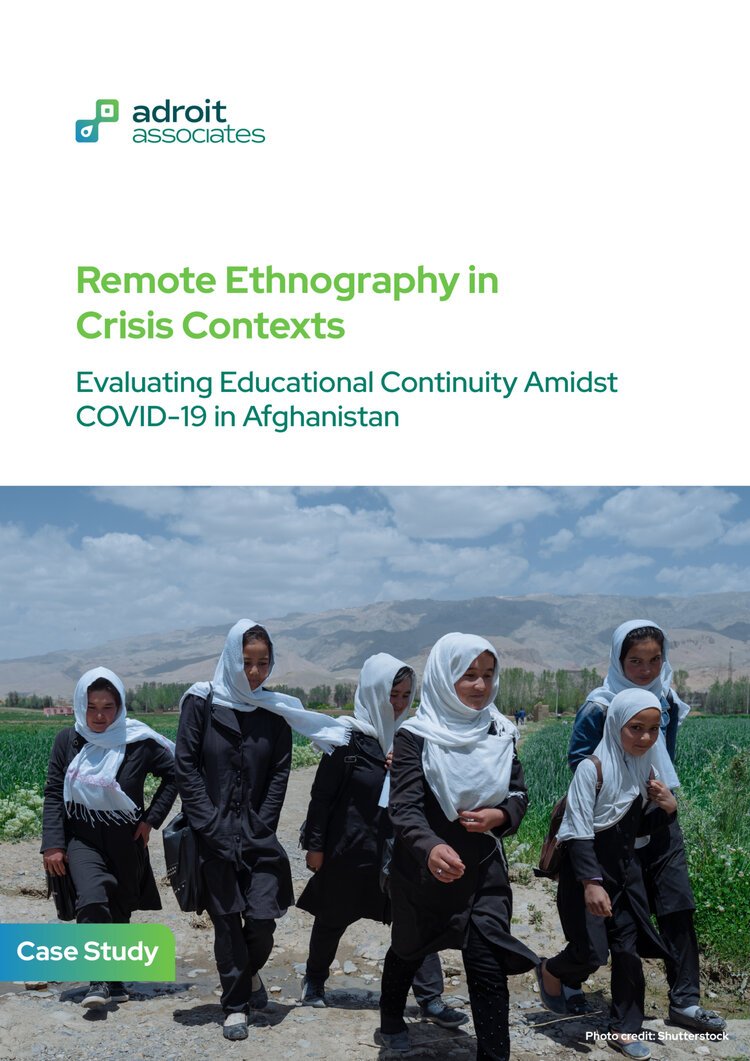
This case study explores the use of remote ethnography by Adroit Associates to monitor and evaluate the Afghanistan National Institute of Music’s (ANIM) transition to online education during the COVID-19 pandemic. As the pandemic disrupted traditional, in-person educational programs worldwide, ANIM needed to quickly adapt to remote learning. The study highlights how Adroit’s innovative methodologies ensured educational continuity amidst the crisis while providing valuable insights into the broader potential of remote ethnography in crisis situations.
Adroit Associates implemented a phased, mixed-methods approach to monitor ANIM’s online pilot program. The three-phase structure allowed for continuous adaptation and improvement based on real-time data. Key methods included online surveys with students, telephonic interviews with key informants, and remote observations of classroom sessions. This combination of qualitative and quantitative data provided a comprehensive understanding of the logistical challenges, educational effectiveness, and participant experiences.
ANIM's rapid shift to remote learning required technological adaptations, such as providing students with tablets and internet packages. Despite connectivity issues and logistical barriers in the early stages, the program successfully maintained engagement, with subsequent phases showing significant improvements. Continuous feedback mechanisms from students, parents, and educators allowed for ongoing adjustments, ensuring the program’s success.
Remote ethnography became crucial during the pandemic due to the impossibility of physical presence. By leveraging digital tools such as video conferencing and telephonic surveys, Adroit was able to monitor educational programs without risking the health and safety of participants. This approach demonstrated flexibility and adaptability in data collection, allowing Adroit to respond to evolving challenges while still achieving educational objectives.
The study's findings highlight key lessons:
- Adaptability in Research Design: Remote tools effectively replaced traditional methods with the right planning and context-specific adaptations.
- Hybrid Methodologies: A combination of remote and in-person approaches, where possible, improved data collection.
- Addressing Technological Disparities: Proactive steps, like providing students with internet-enabled devices, were critical to maintaining participation in regions with unstable infrastructure.
- Ethical Considerations: Emphasizing confidentiality and data security was essential in a volatile environment like Afghanistan.
This case study not only demonstrates the resilience of ANIM in navigating a crisis but also showcases the effectiveness of remote ethnography in crisis-affected contexts. It provides a blueprint for future educational initiatives and monitoring efforts in similarly challenging environments, emphasizing the importance of real-time adaptation and participant feedback. Adroit’s approach serves as a model for remote data collection during global health emergencies and other crises where traditional ethnographic methods may not be feasible.


